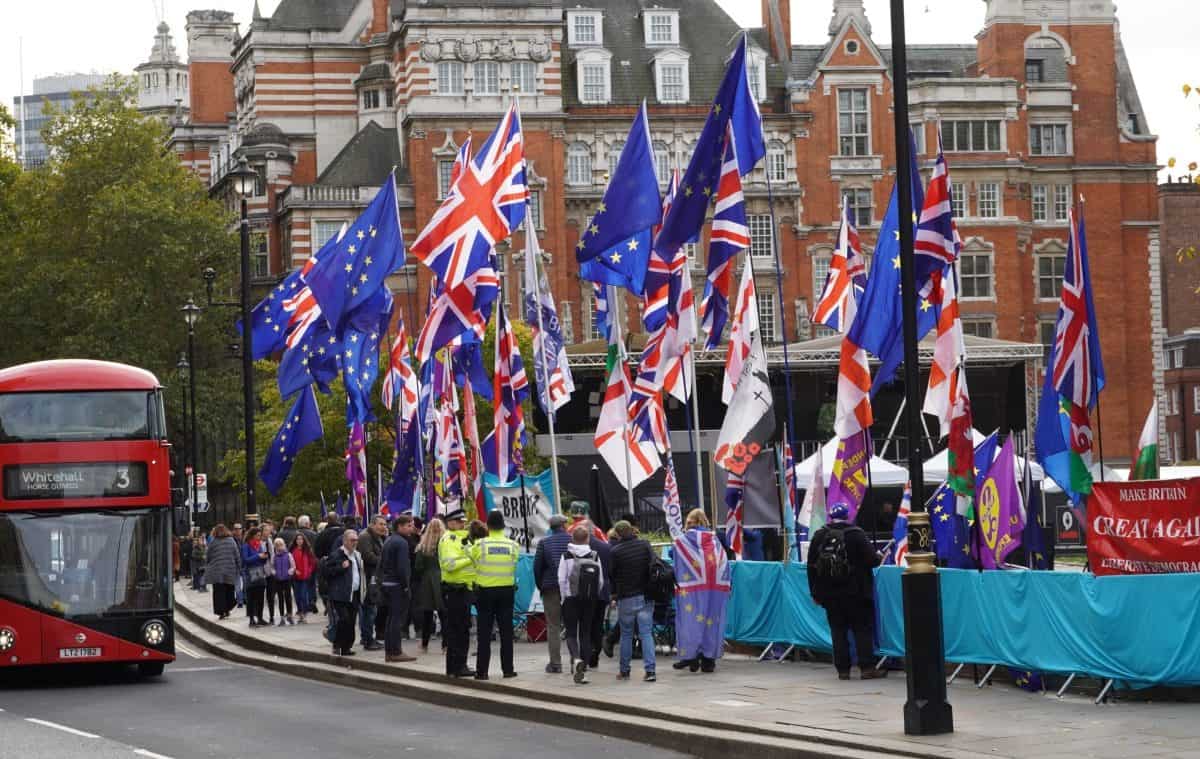Steve Peers, University of Essex
Officials from the UK and the EU are meeting at a crunch point in the negotiations for a future free trade agreement. A number of issues could scupper the talks, but perhaps the biggest is state aid. So what is the dispute about – and can it be resolved?
The UK has been bound by the rules on state aid as a member state of the EU. These essentially ban member states from giving aid in any form, if it “distorts or threatens to distort competition” by favouring certain companies.
There are numerous exceptions, such as “aid having a social character, granted to individual consumers”, aid following natural disasters and aid to help economic development in places with very low standards of living. But in general, the rules seek to prevent member states from using government money to give companies an unfair advantage over rivals in other member states.
The rules are enforced by the EU commission, and the commission and member states have adopted a mass of secondary state aid law on issues such as regional development. In practice, many state aid issues are litigated in the courts – going either to the EU court directly or via national courts asking the EU court questions about the law.
The competing proposals
Voices on both the UK and the EU sides argue that the other side has been negotiating the future trade agreement in bad faith. So what is the true picture as regards state aid?
The UK withdrawal agreement says that the two sides should negotiate agreements as referred to in the separate political declaration on their future relationship. According to paragraph 77 of that declaration, the UK and EU “should uphold the common high standards” which currently apply, including a “robust and comprehensive framework” for state aid control, and “should rely on appropriate and relevant union and international standards”, with “appropriate mechanisms to ensure effective implementation domestically, enforcement and dispute settlement”.
But the UK and EU have completely different proposals for what this means for a future free trade agreement. The UK’s proposed free trade agreement refers (in chapter 21) to only consultations on subsidies, with no reference to how the rules might be enforced domestically, and a ban only on agricultural export subsidies. It excludes these consultations from dispute settlement. This conflicts with the political declaration, which specifically mentions a framework, along with enforcement and dispute settlement.

For its part, the EU proposal includes continuing to apply the substance of EU state-aid law to the UK. While the rules would now be enforced by a UK authority, not the commission, courts in the UK could still ask the EU court to interpret them under the proposal.
Even future EU state aid laws would apply in principle to the UK. The UK could refuse to apply them, but would face penalties if it did that. This is not very close to the political declaration either, given that the declaration makes no reference to the UK courts asking the EU courts questions.
The EU proposal refers to keeping EU standards, while the UK refers to international standards – yet the political declaration refers to both. So each side has some reason to argue that this aspect of its proposals is consistent with the declaration. But this gets us no closer to agreement.
The UK has reportedly most recently proposed a set of “principles” to control domestic subsidies, but these were rejected by the EU because they didn’t come with any means for the EU to ensure that they were honoured.
Room for compromise?
Building on this latest proposal, a possible compromise might consist of the UK agreeing to a domestic framework on state aid, with effective enforcement and dispute settlement, governed not by EU law but by international law in the form of the World Trade Organization’s subsidies code. The Institute For Government think tank has produced detailed proposals as to how that might work.
Both sides could, if they chose, declare this as a victory: the UK would no longer be applying current or future EU law, and there would be no role for the EU court. Meanwhile, the EU would have a commitment from the UK to apply restrictions on subsidies, enforceable by arbitration if need be.
But it would nevertheless need both sides to compromise: there are reportedly some in the UK government who want to avoid any significant commitment on subsidies or state aid at all – and it is hard to imagine the EU agreeing to that.
Each side points to examples of what the EU has agreed to in the past: the UK position is similar to what the EU has agreed to with Canada, for instance. But then Japan and the EU have agreed to more restraints on subsidies, similar to the possible compromise suggested above; and the UK has accepted those constraints in its own free trade agreement with Japan.
A final complication is the connection between this issue and the UK’s controversial Internal Market Bill. The bill would give ministers power to override the state aid rules in the Northern Ireland protocol to the withdrawal agreement, which goes even further than what the EU has proposed for the future free trade deal with the whole UK (for instance, the EU commission decides on whether to allow the aid).
Time will soon tell whether the two sides are willing to thrash out a compromise on this issue – and whether, even if they do so, the talks might nevertheless be derailed for some other reason.
Steve Peers, Professor of Law, University of Essex
This article is republished from The Conversation under a Creative Commons license. Read the original article.












